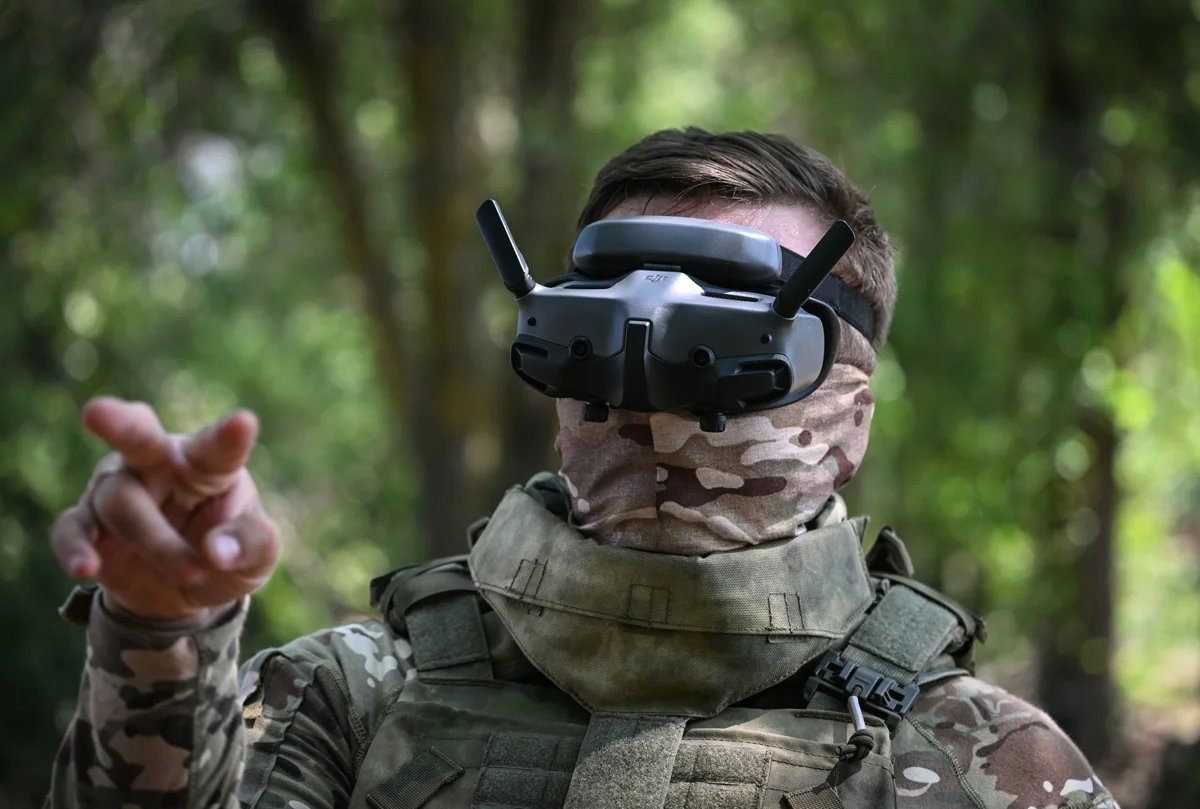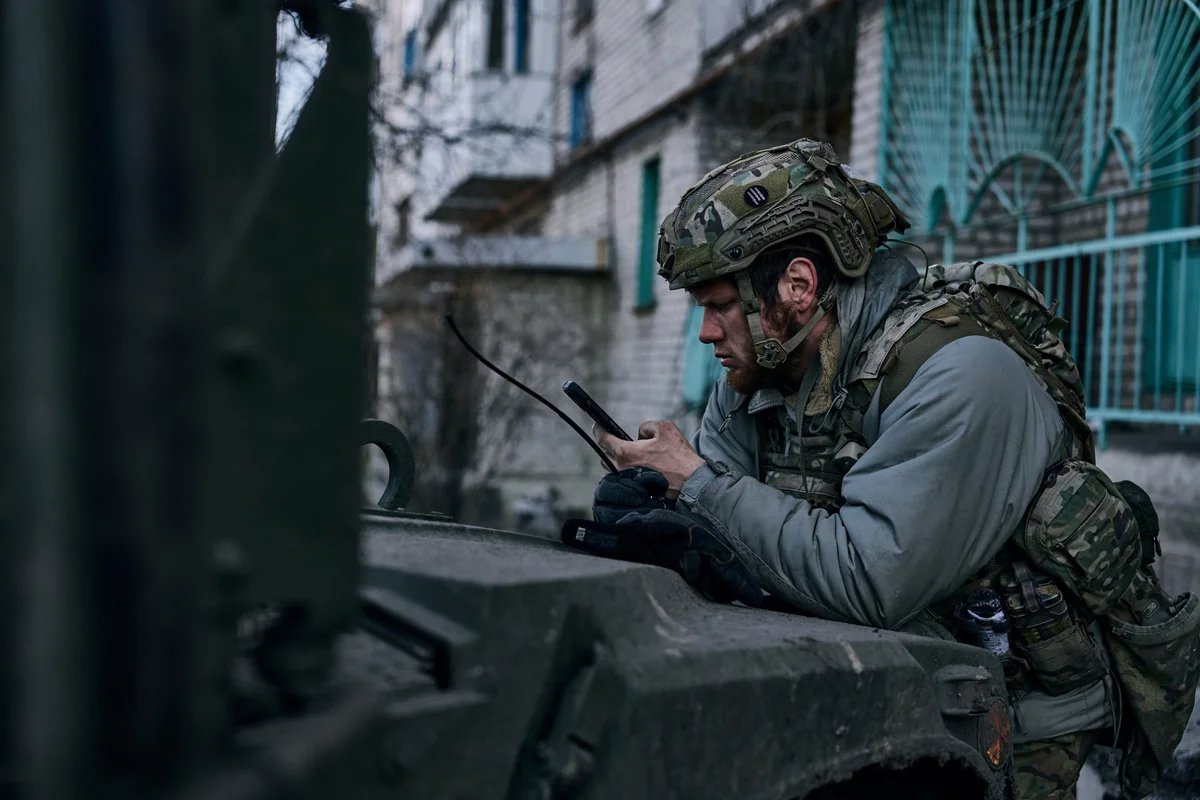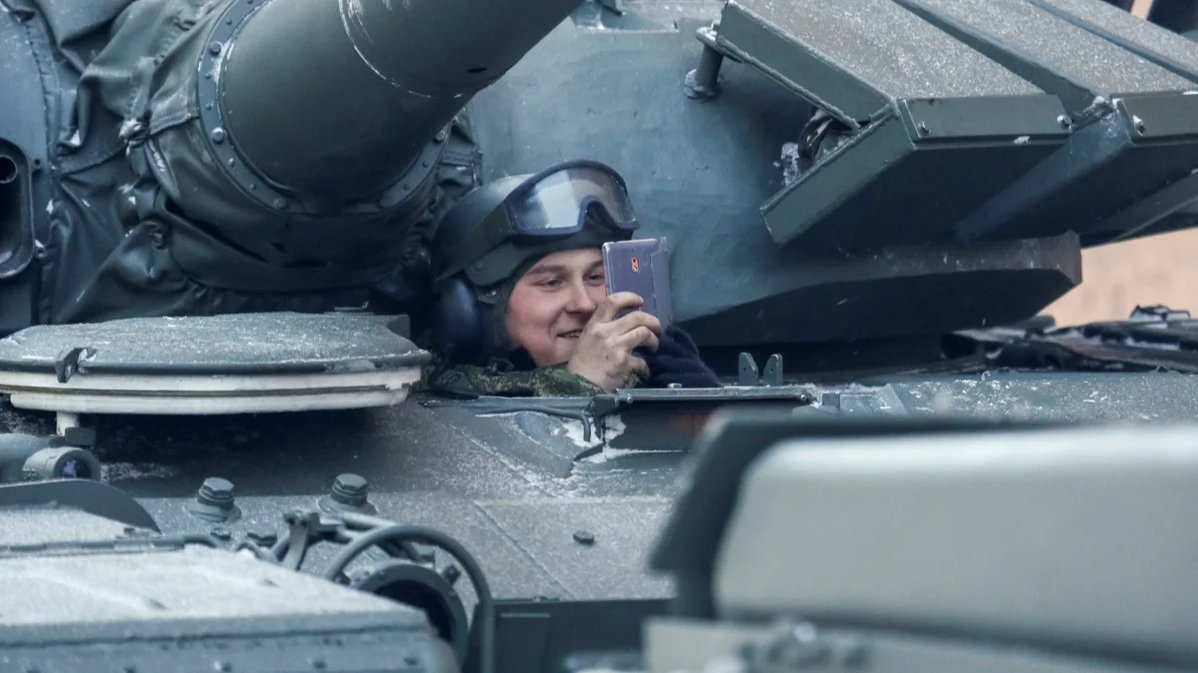Despite smartphones having unsurprisingly become as indispensable to modern warfare as they have to most other spheres of life, new legislation signed into law by Vladimir Putin on Thursday allows commanding officers to punish subordinates caught using their smartphones on the front line in Ukraine by confining them to the guardhouse for up to 10 days.
Pro-war Russian bloggers have ridiculed the bill for being out of touch with the situation on the ground, however. “Due to the previous well-documented shortcomings of the Russian Defence Ministry in providing the army with reliable internet and telecommunications, smartphones have become the most important communication tool between units at the front,” wrote Dmitry Rogozin, propagandist and “senator” representing the Russia-occupied Zaporizhzhia region of Ukraine.
“It would probably be easier to say where devices aren’t being used in the current war,” military analyst Kirill Mikhailov told Novaya Europe.
“Banning smartphones on the front line would be like banning non-regulation shoes or clothing.”
“If you suddenly seized every serviceman’s electronic device, there would be an almost total collapse in combat capability: drones wouldn’t fly, you wouldn’t know where your artillery was landing and there would be no supplies as logistics would descend into chaos,” he explained.
“Smartphones are used everywhere,” according to Yan Matveyev, a military analyst with Alexey Navalny’s Anti-Corruption Foundation. “For communication, navigation … internet and mobile communication. Banning smartphones on the front line would be like banning non-regulation shoes or clothing. It doesn’t make sense to discuss whether servicemen could abide by these rules. Of course they couldn’t — everything would grind to a halt.”

A Russian serviceman takes part in drone control training near Kupyansk, Kharkiv region, Ukraine, 18 July 2024. Photo: Stanislav Krasilnikov / Sputnik / Imago Images / SNA / Scanpix / LETA
However, Matveyev suggested that the unenforceable legislation could be used by commanders as a way to exert greater control over their subordinates. “Any commander could easily say someone had broken a rule whenever he felt like it and administer a punishment.”
“The vast majority of units either have a dedicated line with high-speed internet or have Starlink satellite communication equipment,” an unnamed officer in a Russian volunteer unit told Novaya Europe. “In some places, you can get a mobile connection from nearby towns and villages,” he added. “And some military divisions, brigades, battalions and even companies have their own chat rooms.”
Network-centric warfare
“We now have the term ‘network-centric warfare’, referring to a single communication network that can be used by different units to transfer information,” Israeli military columnist David Sharp told Novaya Europe.
“Advanced armies have long used networks that provide high situational awareness and shorten the chain of command,” he explained. “But it all needs to be well shielded from the enemy.”
The Krapiva automated command and control system used by the Armed Forces of Ukraine (AFU) to coordinate its various units and brigades allows Ukrainian servicemen to receive real-time data on the battlefield situation as well as the enemy’s location, according to the Russian officer.
Ukrainian commanders send whatever information is available via their mobile devices. An officer’s tablet may show where and how the Russian defence is organised, where the artillery is, and can even show drones flying. The Russian side often hacks into the Ukrainians’ devices to gain access to the information stored there.

A Ukrainian serviceman with a smartphone in Chasiv Yar, Donetsk region, Ukraine, 6 March 2023. Photo: Libkos / AP Photo / Scanpix / LETA
The law applies not only to tablets and smartphones, but also to remote control devices for drones, walkie-talkies with internet access, frequency scanners, laptops, as well as any Bluetooth- or wifi-enabled devices, including smart watches and wireless headphones.
In fact, troops have been banned from using these devices since 2019, but as those who broke the rules would have to be sent before a military court for disciplining, the ban was hard to enforce “they rarely locked people up for using their phones,” the Russian officer said. “They just confiscated them.”
Any device emitting a signal on the front line is a target for enemy electronic reconnaissance.
“I’m surprised that Russia wants to regulate this kind of issue with a new federal law,” Sharp said “After all, in any normal army, orders issued by commanding officers should be sufficient.”
The use of civilian devices has become a serious problem for all military forces and are banned in most European armies, Sharp continued, as any device emitting a signal on the front line is a target for enemy electronic reconnaissance. Moreover, modern equipment makes it possible to listen in on conversations and read information on enemy smartphones and tablets, as well as revealing the real-time location of each individual serviceman.
To avoid such problems, troops are normally issued with specially modified devices, or ones that have been designed specifically for use in a war zone, Sharp continued. But as that clearly isn’t the case in Russia, each individual commander is being forced to choose between convenience and safety.
Join us in rebuilding Novaya Gazeta Europe
The Russian government has banned independent media. We were forced to leave our country in order to keep doing our job, telling our readers about what is going on Russia, Ukraine and Europe.
We will continue fighting against warfare and dictatorship. We believe that freedom of speech is the most efficient antidote against tyranny. Support us financially to help us fight for peace and freedom.
By clicking the Support button, you agree to the processing of your personal data.
To cancel a regular donation, please write to [email protected]

